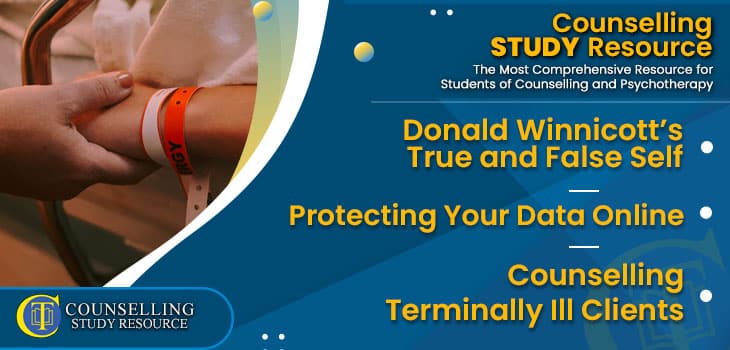See Counselling Skills Used in Real Sessions by Qualified Therapist
Real Sessions – Real Presentations – Real Skills
Gain the competence and confidence to use counselling techniques effectively!

In Episode 250 of the Counselling Tutor Podcast, your hosts Rory Lees-Oakes and Ken Kelly discuss this week’s three topics:
Donald Winnicott’s True and False Self
Listen as Rory and Ken delve deeper into Donald Winnicott’s theory of true and false self, and how this may present in the therapy room.
The key points of this section include:

Real Sessions – Real Presentations – Real Skills
Gain the competence and confidence to use counselling techniques effectively!
With a large majority of what we do being done online, it’s important that we’re aware and being careful with how and where our data is stored.
The main points of this discussion include:

On-demand access to a rich lecture library covering theory, skills, and professional development for counselling students—Mapped to the UK awarding body criteria
“The Student Library has been BRILLIANT, I can’t recommend it enough!
It has been a lifeline in helping me prepare for practice and my first clients. If you’re considering it, go-for-it, it’s absolutely worth it!”
Kelly – Graduated and now in practice.
In this week’s ‘Practice Matters’, Rory speaks with Paula Mayes about working with terminally ill clients.
The key points of this discussion include:
Donald Winnicott’s True and False Self

Get on-demand Certified CPD that is implementable in your practice
